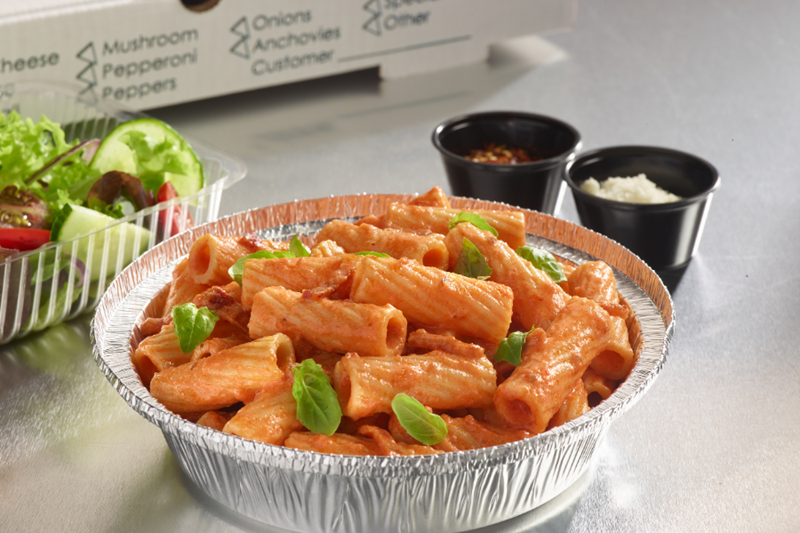 It’s every restaurant owner’s nightmare: an illness or food poisoning outbreak is traced back to your establishment. Shaking the perception your store isn’t sanitary can be a difficult and expensive process. Instead of betting that it won’t happen to you, take steps to ensure your guests’ and employees’ good health. Follow these rules to lay the foundation for healthier habits in the workplace.
It’s every restaurant owner’s nightmare: an illness or food poisoning outbreak is traced back to your establishment. Shaking the perception your store isn’t sanitary can be a difficult and expensive process. Instead of betting that it won’t happen to you, take steps to ensure your guests’ and employees’ good health. Follow these rules to lay the foundation for healthier habits in the workplace.
1 Wash, wash and wash again. “Handwashing is your first and best defense against transmitting illness in the restaurant setting,” says Roslyn Stone, chief operating officer of Corporate Wellness, Inc., a Mount Kisco, New York-based firm that consults with independent businesses on workplace medical and wellness issues. Ideally, workers should wash their hands with soap for at least 24 seconds each time they move from a food-handling task to a non-food-handling task (even one as minor as scratching one’s nose). But Stone acknowledges that this is tough at pizzerias, where one worker might serve food, then take money at the register, then bus a table. Scheduling workers so there’s at least one employee whose sole responsibility is managing the cash register can help, says Larry Parks, owner of The Original Dominick’s in Parkersville, Maryland. Having someone work the counter at all times prevents the food staff from risking contamination by handling money or touching lots of hands.
Some jurisdictions require gloves as part of their food service code, but Stone cautions that gloves aren’t any better than handwashing, and may actually be worse because they can create a false sense of security. She says employees don’t change gloves often enough between tasks, like moving from handling raw meats to cooked. She says hand sanitizers pose a similar problem — they can be a good stop-gap measure, but the mechanical motion of rubbing soap into your hands is what really gets them clean and germ-free.
2 Keep a clean “house.” Hand sanitizers can be good for customers, however. Parks says The Original Dominick’s has sanitizers deployed all around the restaurant, including at cash registers and in the bathroom. To minimize infection from one guest to another, Parks has his staff clean and sanitize the whole table. “You never know when a small child is going to put their mouth on the table,” he says.
Cleaning tables doesn’t just mean wiping down crumbs with the same damp cloth you’ve been using all night, though. Stone advises using quat sanitizer for table cleaning. Quat is short for “quaternary ammonium chloride,” and when properly diluted, it makes an effective but generally safe disinfectant for shared eating areas. Stone says there’s really no need to move to harsher bleach solutions unless you have a Norwalk virus outbreak in your area. “Quats will kill fl u, stomach bug and other basic viruses, but only bleach is effective against Norwalk,” she explains.
3 No matter how snowed under you might be, don’t let workers work sick. It sounds like common sense if you’re sick, don’t work. But it’s more complicated than that, both for the hourly workers who lose wages if they don’t show up, and the owners who have to find a replacement on short notice.
The issue of not working when sick is one that Stone encourages her clients to address as early as the interview and hiring process for new employees. “You need to help them understand that because they work in food service, they’re going to be held to a higher standard as far as working while sick,” she says. She encourages employers to put together a “Safe Working Statement” that says they won’t come to work until they’ve been symptom-free from nausea, vomiting and diarrhea for at least 24 hours.
4 As an operator, it is up to you to lead with good training and good examples. And while getting employees to sign health commitments during hiring is a good start, it’s not enough. “Especially in this economy, a well-trained staff is essential because an unhappy customer does not come back,” explains Juliet Bodinetz-Rich, executive director of Bilingual Hospitality Training in Baltimore, Maryland.
Bodinetz-Rich says investing time in one-on-one or small-group training will show employees how seriously you take healthy practices. She also recommends practicing “tell-and-show”: you explain how to do something correctly, then have the trainee show you they understand through demonstration.
And remember that as the boss, you need to be the example. Stone says when an employee you rely on calls in sick, it helps to remember why you have health policies in the first place. “If a pizza-maker calls in sick and you pressure him to come in, someone could die,” she says, noting pizza places are often gathering places for all generations, including the elderly and young children, whose immune systems aren’t as strong as a healthy adult’s. “No one is going to die if their pizza takes a few more minutes because you had one pizza maker instead of two.”
Parks, owner of The Original Dominick’s, says he makes it an even more personal choice for his workers. “We like to eat the food from the store and we take it home to our families, too,” Parks says. “That’s a great motivation to follow correct health procedures.” ?
Health Training for Employees with Limited English Skills
Sometimes great employees don’t always speak fluent English. Juliet Bodinetz-Rich, executive director of Bilingual Hospitality Training in Baltimore, Maryland, offers these tips for making sure employees with limited English skills are well trained in your restaurant’s health policies:
? Bring in someone to assist with translation. You may have another employee who could do this. If not, paying a translator is money well-spent when you consider the financial implications of not having a well-trained employee.
? Practice explanation and demonstration. This is a good way to train any worker, but it’s especially helpful for limited- English-speakers.
? Make sure the workers understand not just the what’s, but also the why’s of the training. For example, if you’re going over safe food handling, explain the types and dangers of foodborne illnesses.
? If you need further help, seek out professionals. Bodinetz- Rich recommends ServSafe food service certification, which is available
Alyson McNutt English is an award-winning freelance writer specializing in home, healthy, family and green topics. She is based in Huntsville, Alabama.



